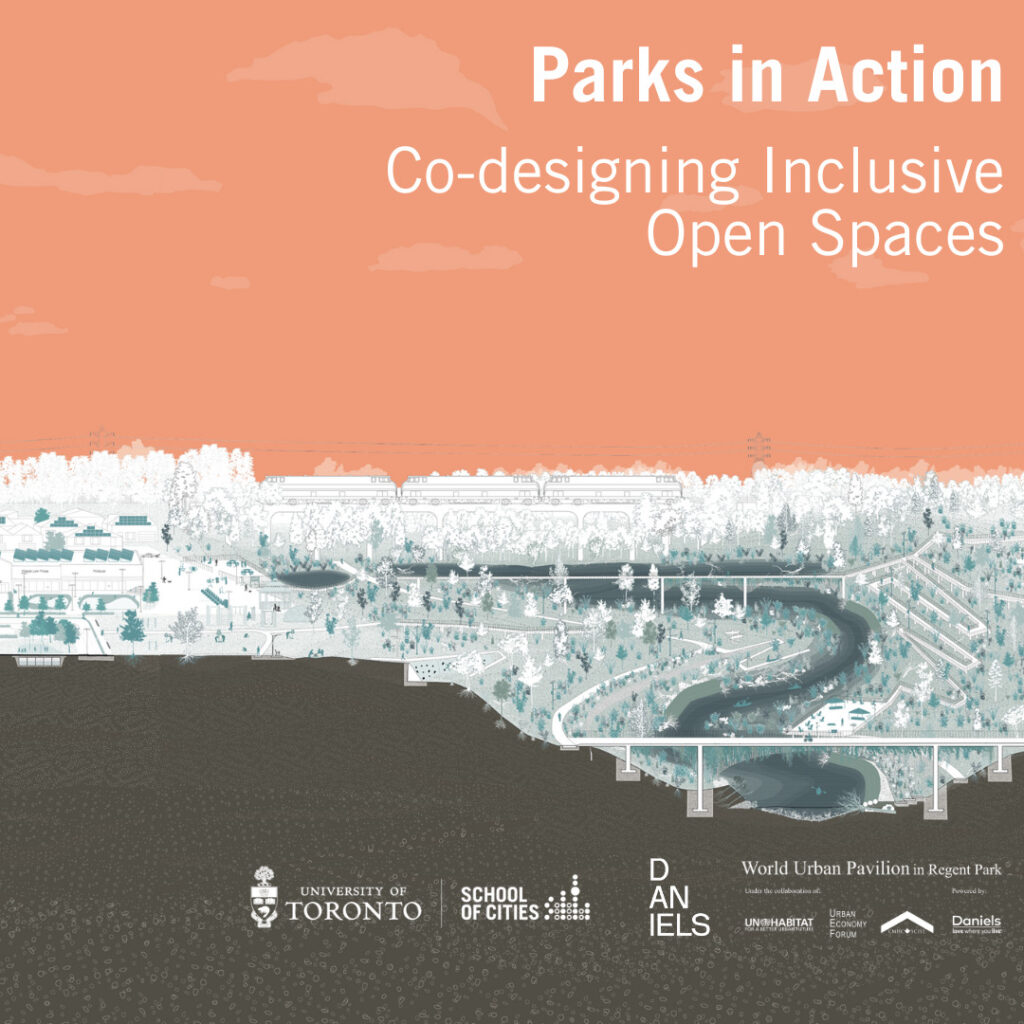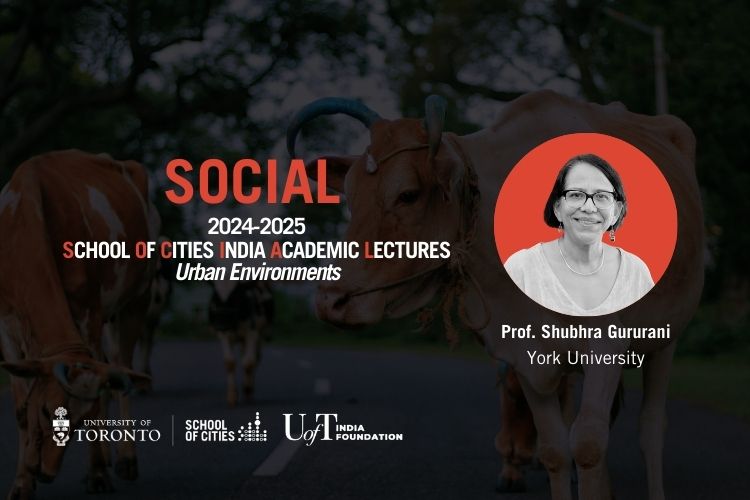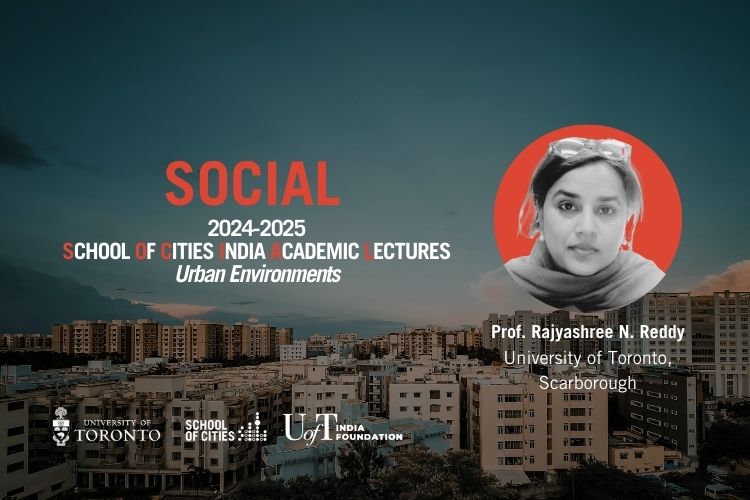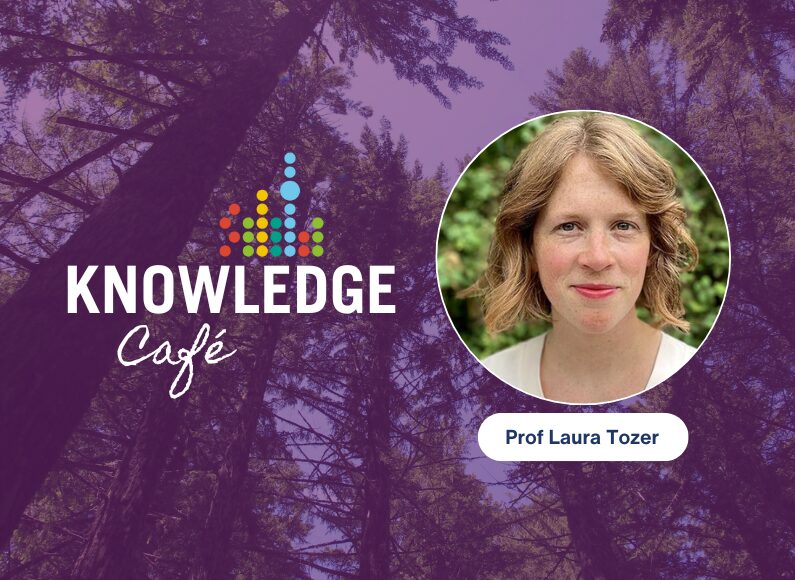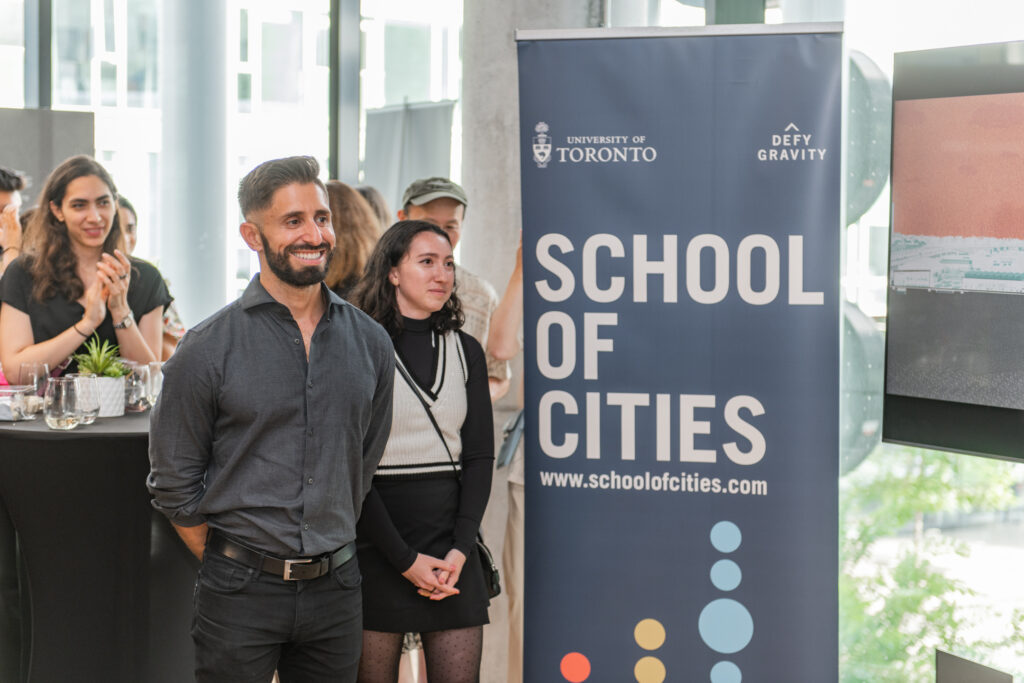
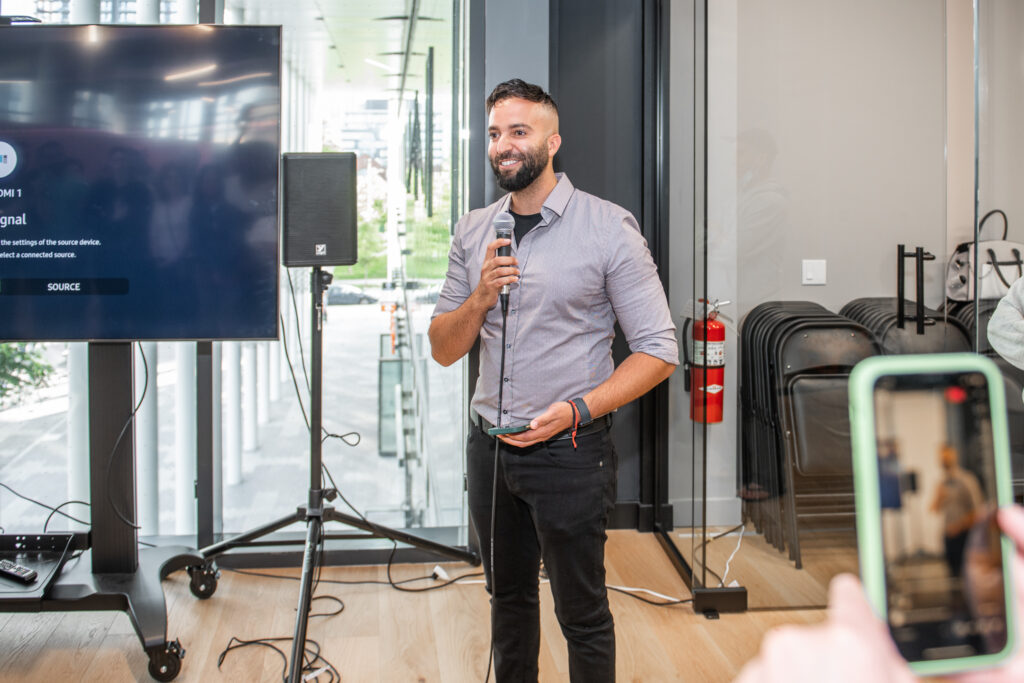
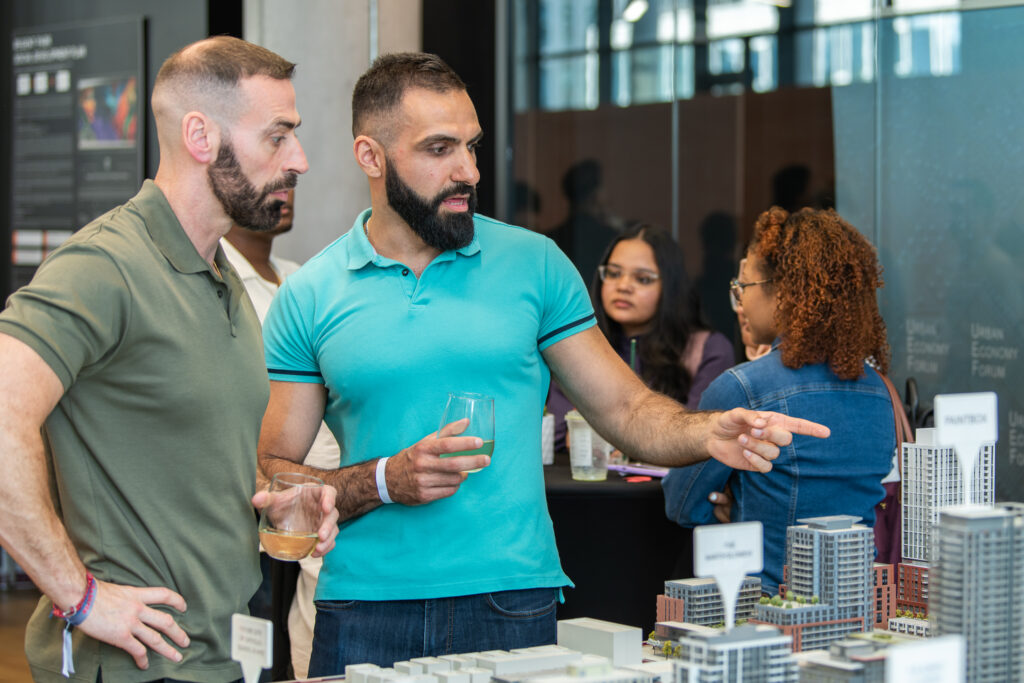
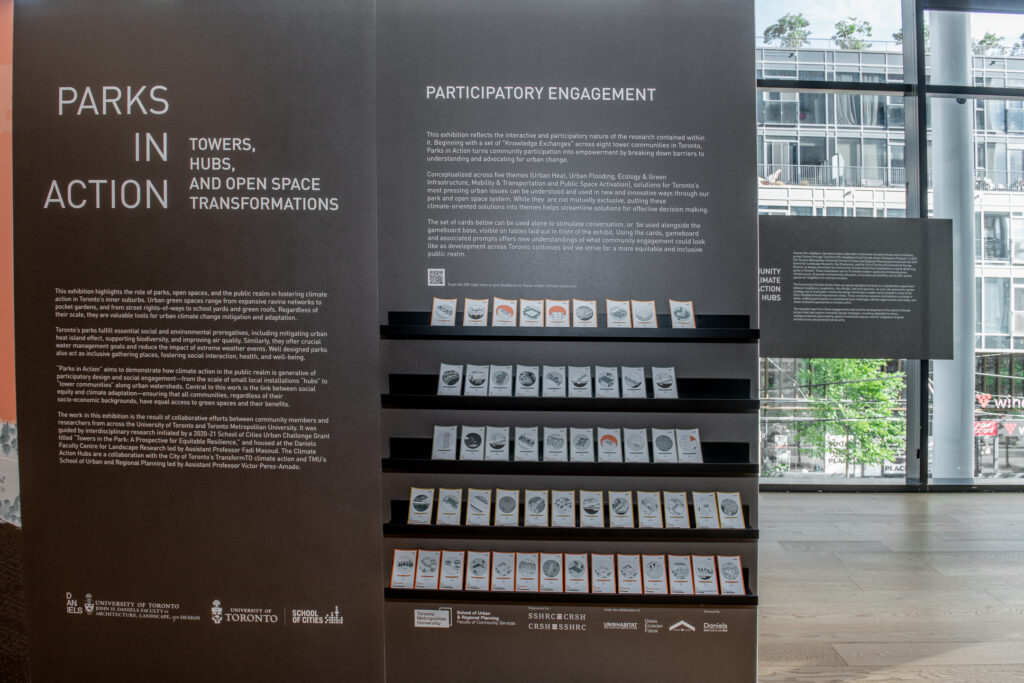
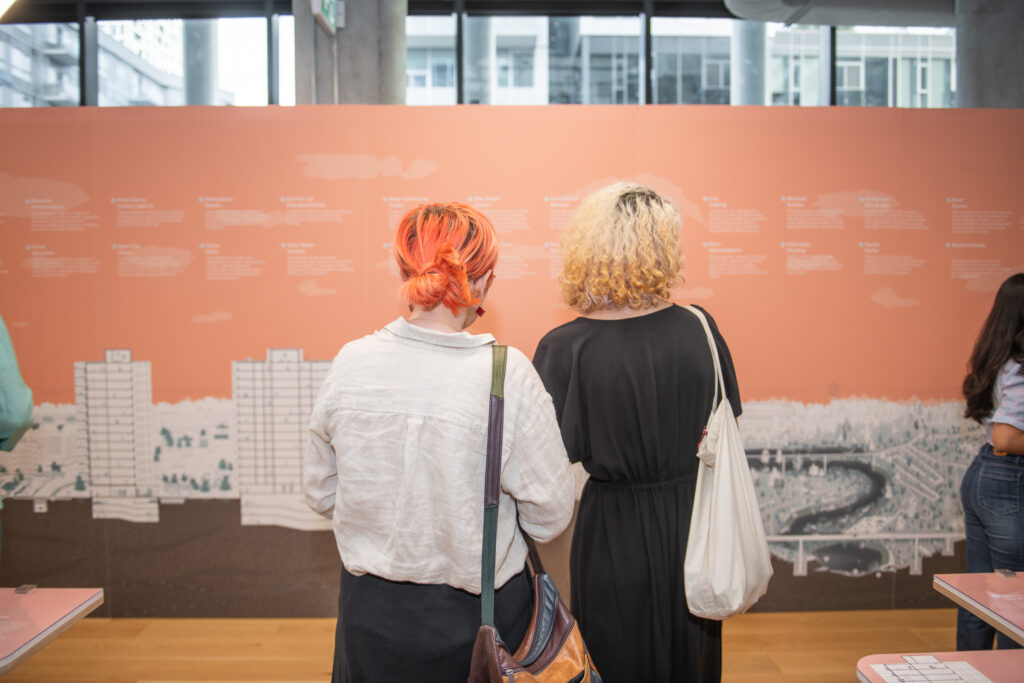
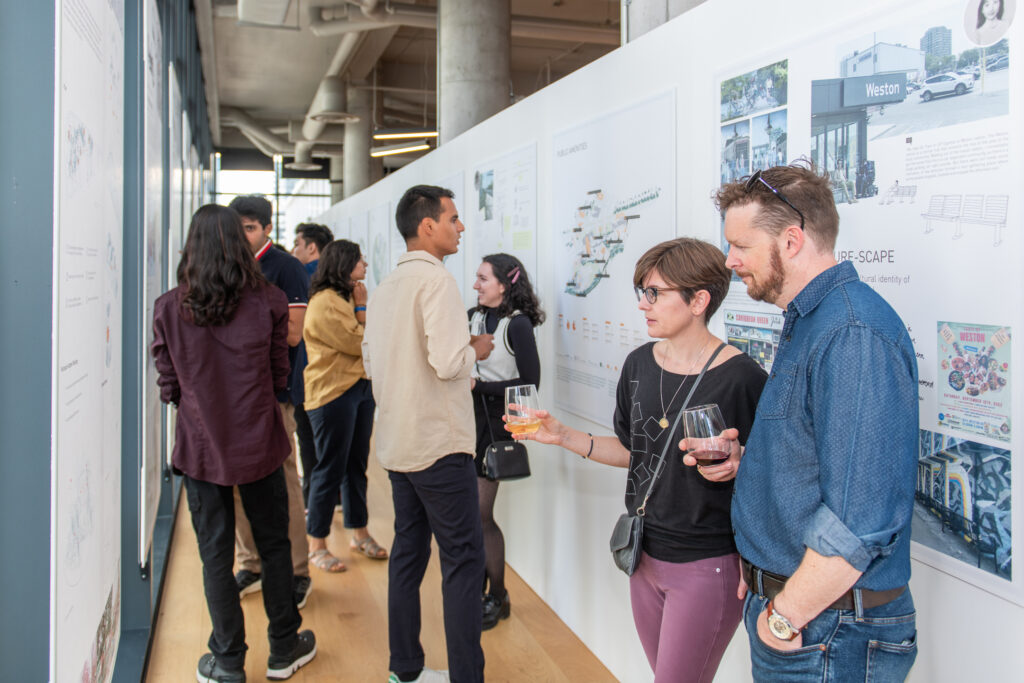
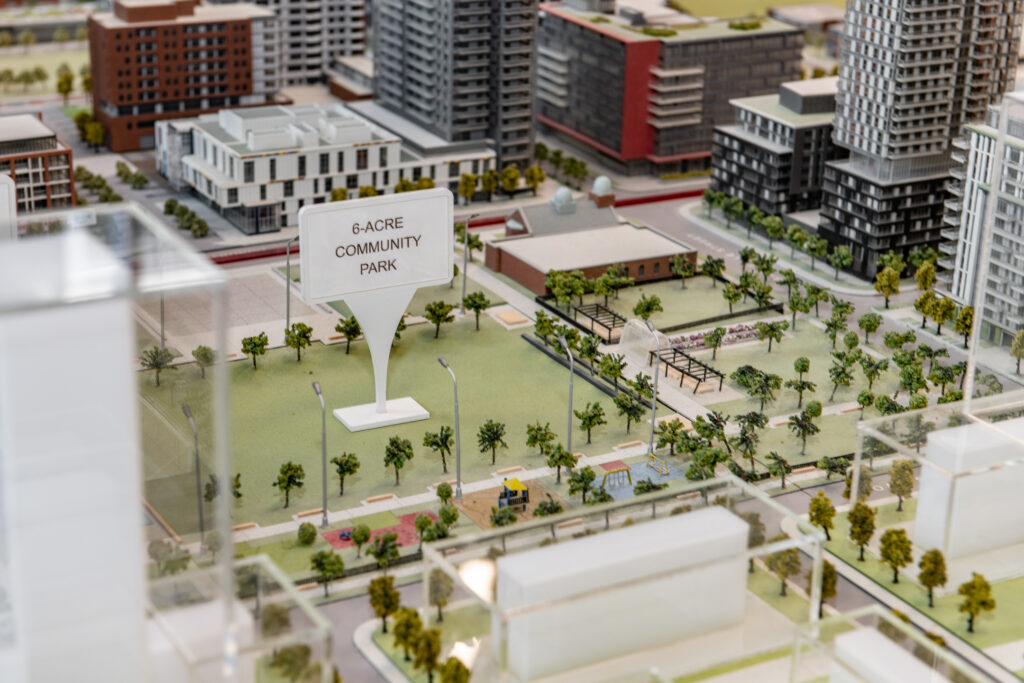
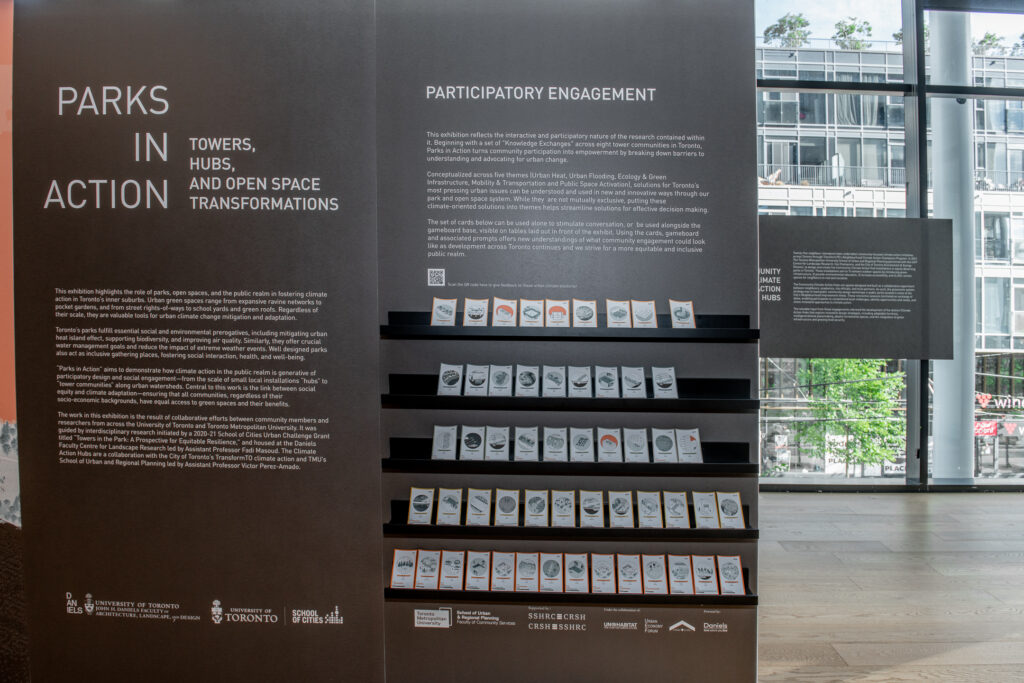
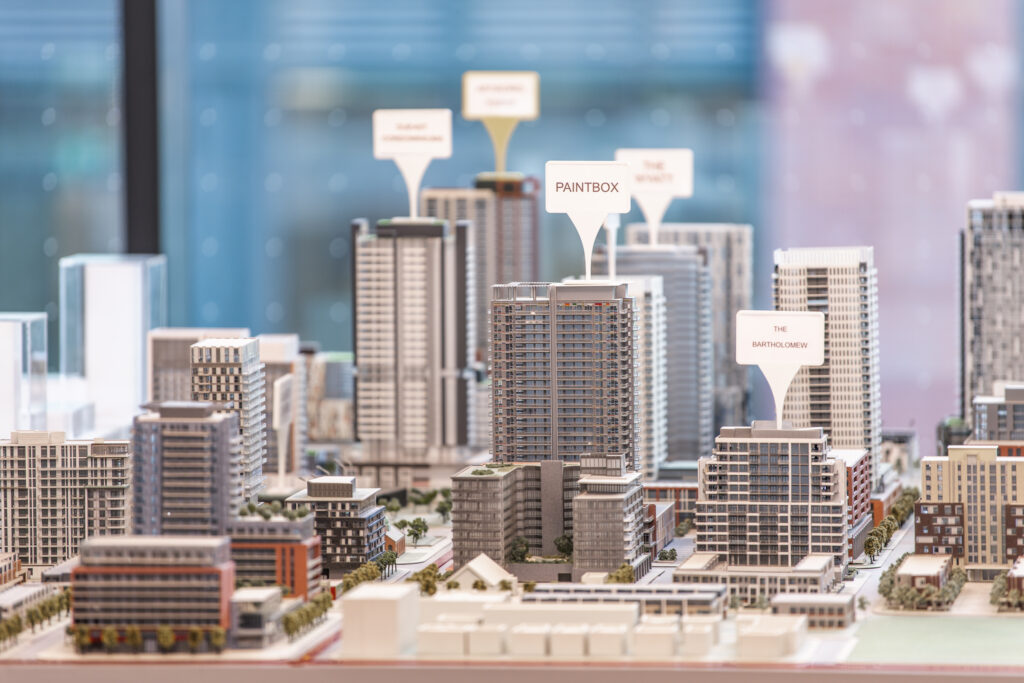
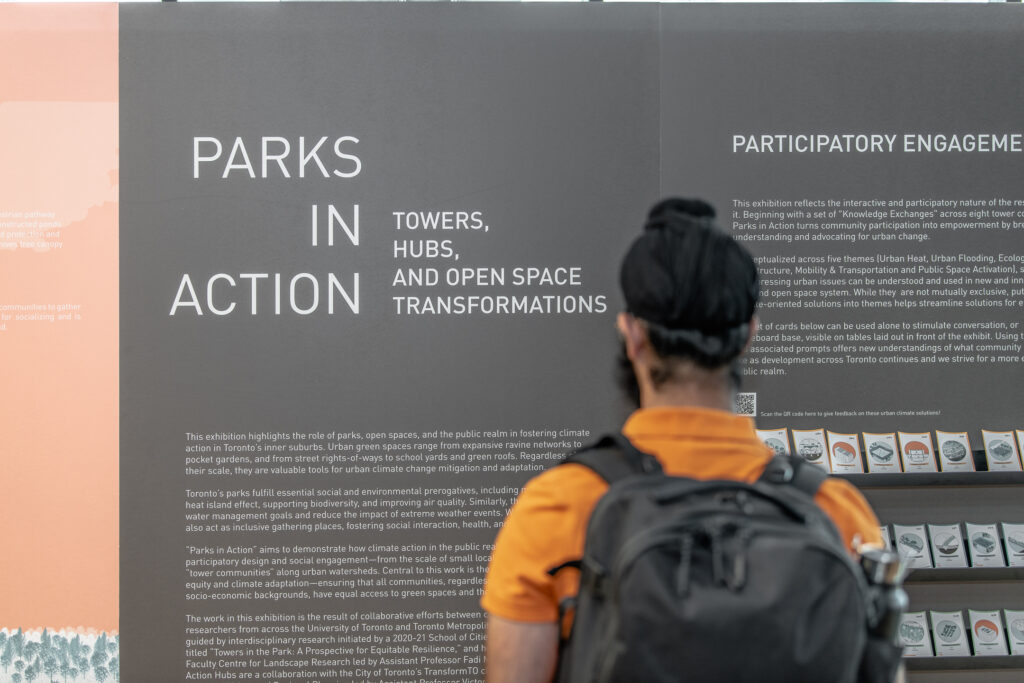
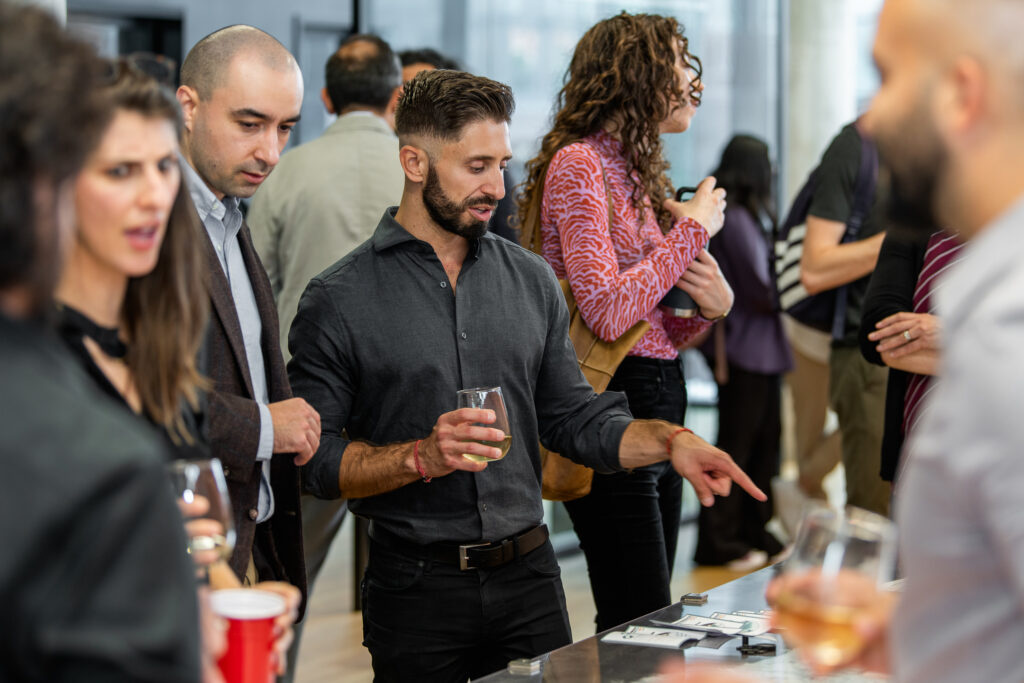
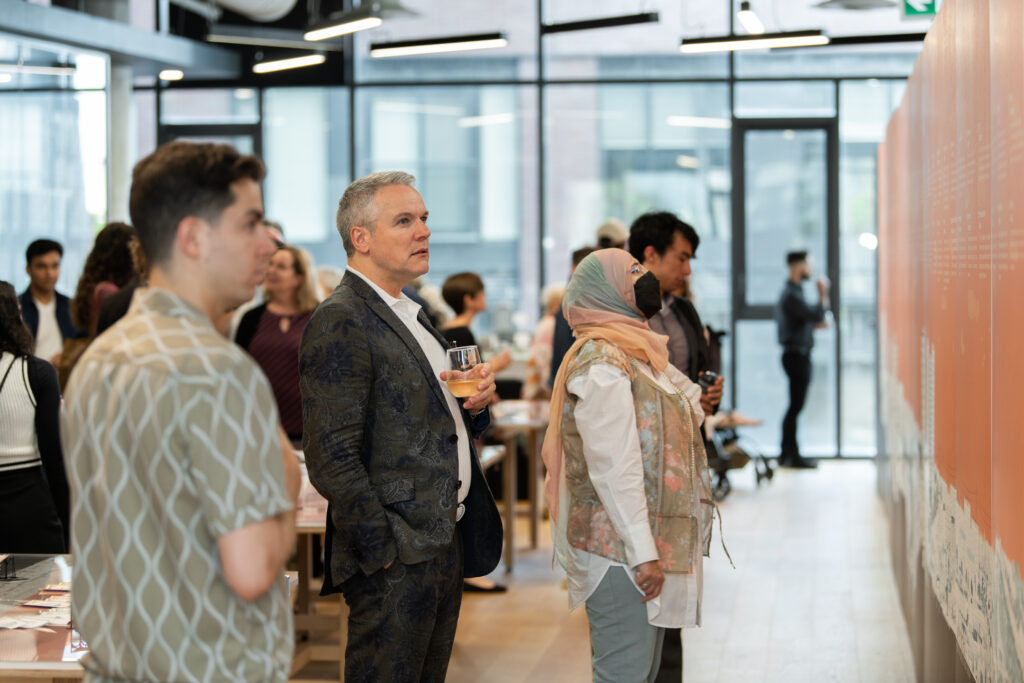
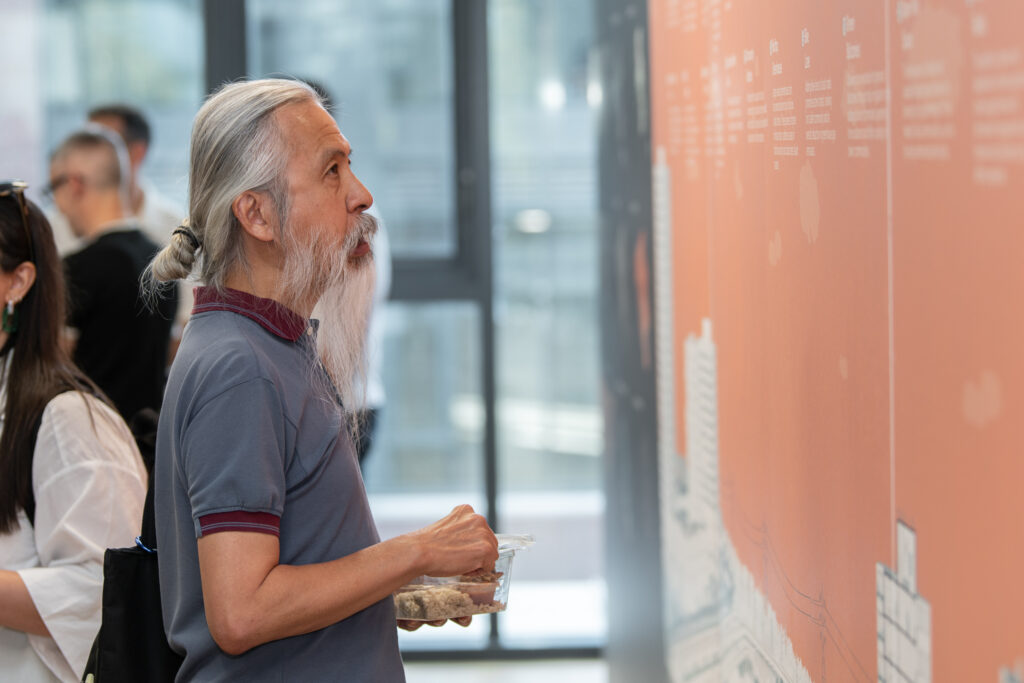
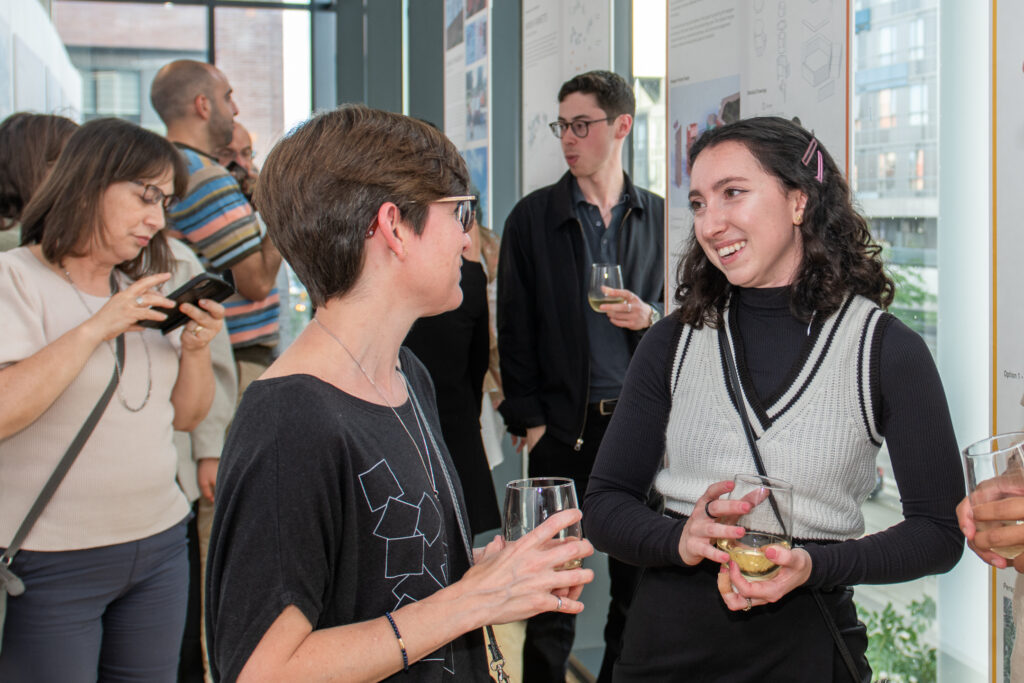
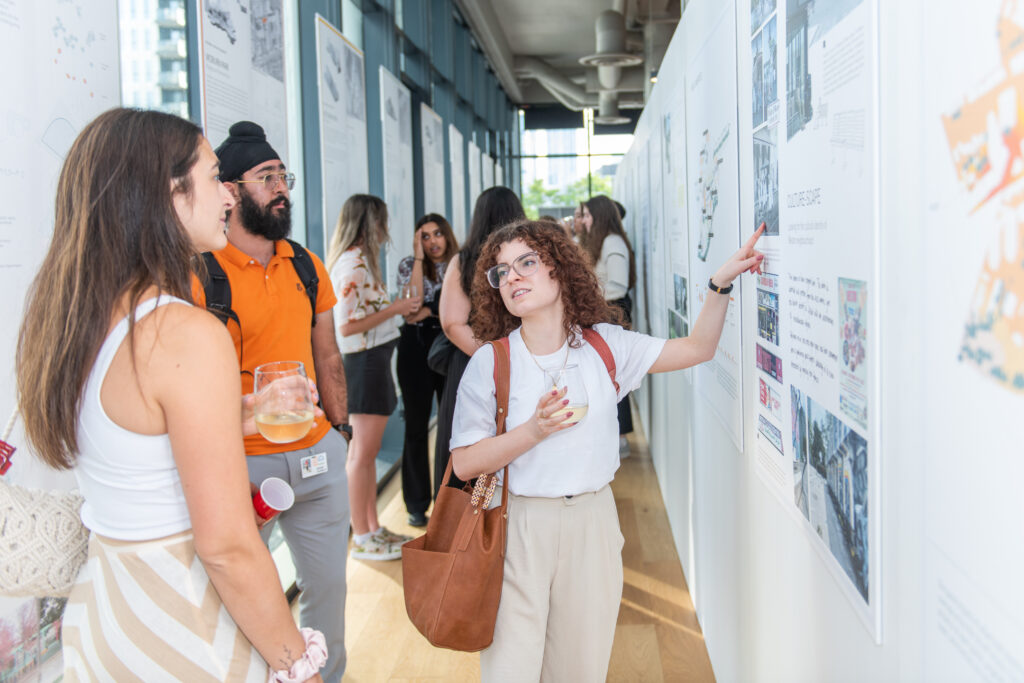
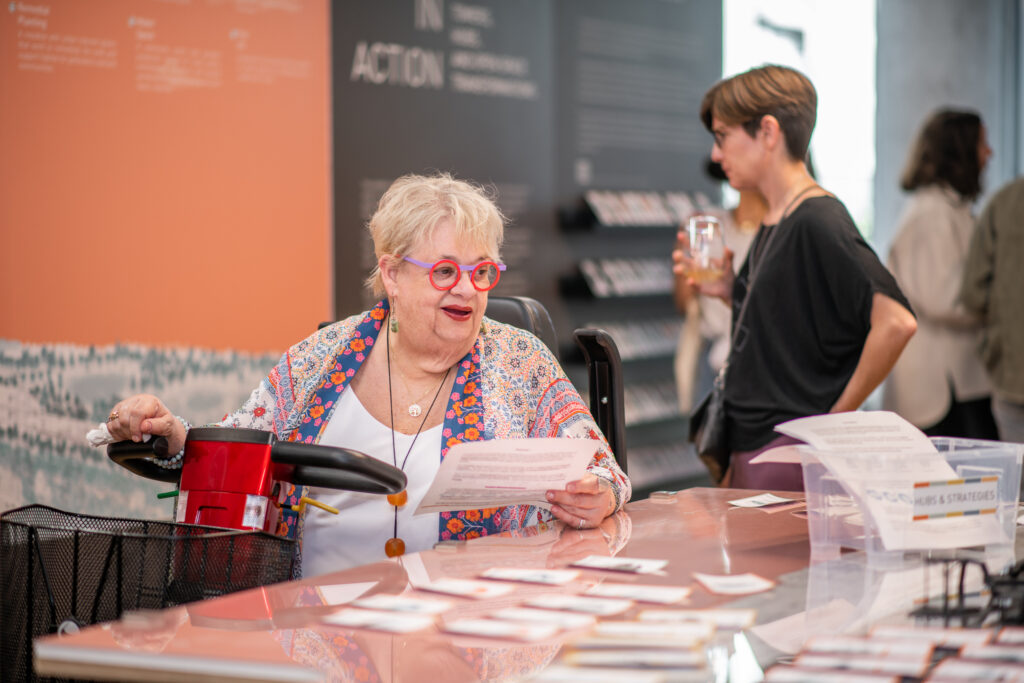
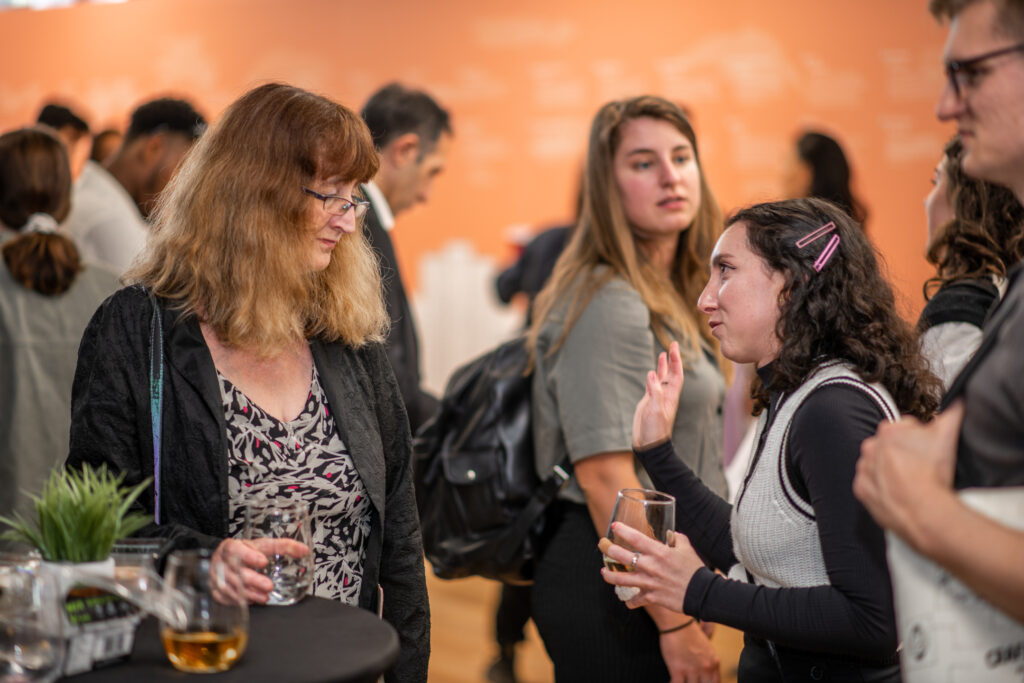
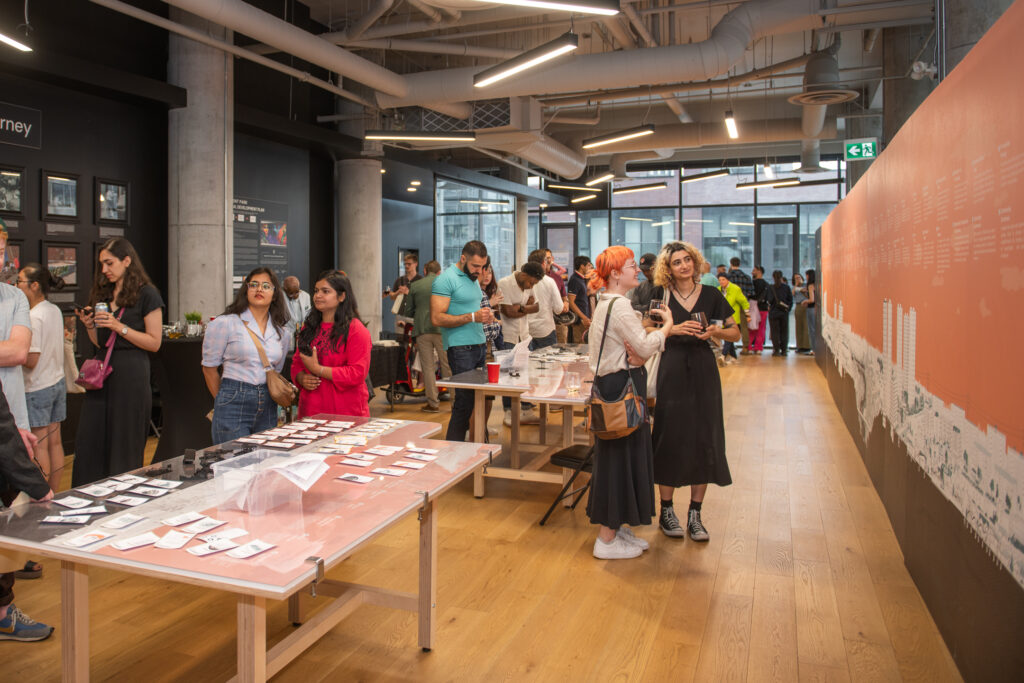
This exhibition highlights the role of parks and open spaces in fostering climate action in Toronto’s inner suburbs. Urban green spaces range from expansive ravine networks to pocket gardens, and from street right-of-way to school yards and green roofs. Regardless of their scale, they are valuable tools for urban climate change mitigation and adaptation.
Toronto parks fulfill essential environmental and social prerogatives, including absorbing pollution, mitigating the urban heat island effect, and reducing urban flooding. They are also gathering places that promote social interaction, health, and well-being. This exhibition aims to demonstrate how climate action in the public realm is generative of participatory design and social engagement — from the scale of small local installations “hubs” to “tower communities” along urban watersheds. Central to the work are the links between social equity and climate adaptation – ensuring that all communities, regardless of their socio-economic backgrounds, have equal access to green spaces and their benefits.
This exhibition is designed to include a range of active to passive participation opportunities that are both educational and procreative. The projects showcase the collaborative efforts of community members and researchers from across UofT and TMU. The work was guided by interdisciplinary research initiated by a 2020-21 School of Cities Urban Challenge Grant titled “Towers in the Park: A Prospective for Equitable Resilience,” and housed at the Daniels Faculty Centre for Landscape Research led by Assistant Professor Fadi Masoud. The Climate Action Hubs were a collaboration with the City of Toronto’s TransformTO climate action and TMU’s School of Urban and Regional Planning led by Assistant Professor Victor Perez-Amado. Parks in Action: Co-Designing Inclusive Open spaces was conceived and curated by Fadi Masoud and Victor Perez-Amado, along with Rashmi Sirkar and Alex Sheinbaum in collaboration with faculty colleagues, students and staff and exhibited in partnership with the University of Toronto’s School of Cities.
Following the launch, the exhibit will be alive with programming throughout the summer. Stay tuned for more details!
The schedule
6:30 pm – 7:30 pm – Networking & mingling
7:30 pm – 7:50 pm – Welcome & speeches (Fadi Masoud – Curator; Victor Prerez-Amado – Curator; Reza Pourvaviary – Co-chair, Urban Economy Forum)
8:00+ pm – Mingling & closure
The team
Fadi Masoud – Curator
Fad- is an Assistant Professor of Landscape Architecture and Urbanism at the University of Toronto and the Director of the Centre for Landscape Research.
His research, teaching, and design work focuses on the relationships between environmental systems, multi-scalar design, and instrumental public policy. Masoud currently leads projects on urban climate adaptation and the design of inclusive and resilient public open space. Prior to joining the University of Toronto, Masoud held teaching and research appointments at the Massachusetts Institute of Technology and Harvard University’s Graduate School of Design. Masoud is the editor of Terra-Sorta-Firma (Actar 2020), an atlas of urbanism on reclaimed land. Masoud currently sits on Waterfront Toronto’s Design Review Panel and was a member of the City of Toronto’s Urban Flooding Working Group, helping launch the city’s first resilience strategy
Victor Perez-Amado – Curator
Victor is an Assistant Professor at Toronto Metropolitan University School of Urban and Regional Planning, trained as an architect and urban designer, and graduated from Harvard University Graduate School of Design.
His academic research is based on aging in place studies, and multigenerational housing, including in 2SLGBTQI+ communities. Some of these projects include Lathrop Communities in Massachusetts, a masterplan and design for independent and assisted living with a focus on seniors with dementia and autism; and the Boston Home-Harmon Apartments, independent living for seniors with mental disabilities. On another scale of engagement with the city, Perez-Amado is interested in activating public spaces by designing and building equitable and educational installations. His methodology is based on theories of placemaking, where he explores prototyping, visualization, public realm activation and community engagement.
Perez-Amado work has been exhibited in the Seoul Biennale of Architecture and Urbanism and the Harvard GSD Grounded Visionaries, among others.
Rashmi Sirkar – Lead Design & Research
Rashmi is a research associate at the University of Toronto currently investigating circularity and climate positive design, adaptive reuse of buildings and low carbon alternatives for affordable housing. She is a graduate of the Master of Architecture program where her thesis researched the potential of creating a circular economy of building materials through the assessment of demolition permits, the life cycle analysis of stick frame houses and the policies and practices surrounding deconstruction, salvage and reuse. Sirkar is a member at Toronto Circularity Network and the Dutch Canadian Circularity Alliance, working towards a wider advocacy and adoption of reuse policy and practices in Toronto. In her current roles as design-research lead at the Centre for Landscape Research and collaborator at Engage Design Build program, Sirkar is exploring participatory design, community engagement and public space activation as methods to co-create equitable environmental impact.
Alex Sheinbaum – Lead Design & Research
Alex is a multi-disciplinary designer, with passions for urban planning, landscape architecture and participatory design. Her academic and professional experience include exploratory research into socio-ecological relationships in Tower-in-the-Park neighbourhoods, merging climate, social and spatial justice using landscape as infrastructure and pushing the boundaries on democratic design through gamified urban decision-making processes. While studying for her Masters of Landscape Architecture, Sheinbaum has led projects working to define community resilience, studying climatic impacts of urban heat and flooding at local scales and examining qualitative understandings of the value of parks and open spaces. Currently, Sheinbaum works at the City of Toronto and is a member of the 2022-2023 Toronto Urban Fellows cohort. Prior to joining the City, Sheinbaum worked with Park People where she helped to develop the first Canadian City Parks Report and assisted with the now-permanent King Street Pilot Project.



